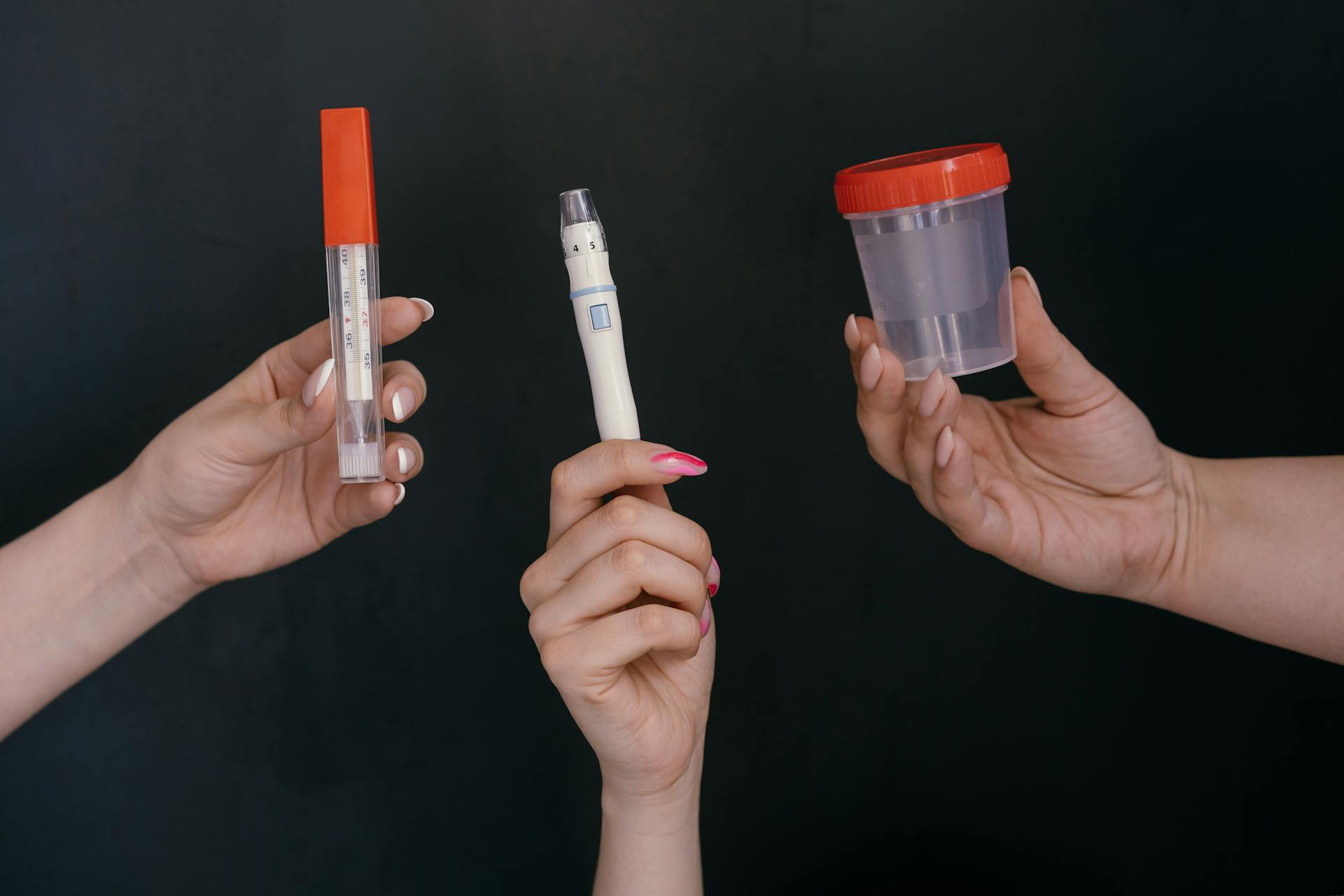
Insurance coverage for Dexcom can be a game-changer for those with diabetes, potentially saving thousands of dollars per year.
Most private insurance plans cover Dexcom, but coverage and costs vary widely depending on your specific plan.
Many insurance plans require a prescription from your doctor to cover the cost of Dexcom.
Typically, the cost of Dexcom is split between the patient and their insurance, with the patient responsible for a copayment or coinsurance.
Some insurance plans may also require a deductible to be met before coverage begins.
Medicare Coverage
Medicare does cover Dexcom G6, as long as you meet the coverage criteria.
You need to have either type 1 or type 2 diabetes and be insulin-treated with three or more daily administrations of insulin, or a continuous subcutaneous insulin infusion (CSII) pump.
To qualify for coverage, you must have an insulin treatment regimen that requires frequent adjustments based on BGM or CGM testing results.
Curious to learn more? Check out: Can Insurance Cover Plan B
You'll also need to have had an in-person visit with your provider within six months prior to ordering the CGM to evaluate your diabetes control and determine coverage criteria.
To remain covered, you must have an in-person visit with your provider every six months following the initial prescription of the CGM to assess adherence to the regimen and diabetes treatment plan.
Medicare requires you to have a receiver that's compatible with a Dexcom G6 and use that receiver with your supplies.
Dexcom G6 supplies used only with a mobile device or other smart device are not covered.
Here's a summary of the Medicare coverage criteria for Dexcom G6:
- Type 1 or type 2 diabetes diagnosis
- Insulin-treated with three or more daily administrations of insulin, or a CSII pump
- Insulin treatment regimen that requires frequent adjustments based on BGM or CGM testing results
- In-person visit with provider within six months prior to ordering the CGM
- In-person visit with provider every six months following the initial prescription of the CGM
Medicare will cover Dexcom G6 equipment under a fee-for-service agreement, which is the case for Original Medicare recipients.
The equipment will generally be covered under Part B as the device will be considered durable medical equipment.
Medicare Part A may also provide coverage if a Dexcom G6 system is administered during a stay in a skilled nursing facility or as an inpatient in a hospital, as long as the equipment is considered a medical necessity.
However, Dexcom does not currently accept Medicare Advantage plans, so you'll need to speak with your plan manager to discuss your individual healthcare options.
For another approach, see: How Often Does Insurance Cover Dentures
Insurance and Cost
Insurance coverage for Dexcom systems can vary between different providers, but most commercial insurers will cover products like these for people living with diabetes.
Dexcom's G7 CGM System is covered under Medicare, and most people with type 1 diabetes who have commercial health insurance can get coverage for CGM systems. Abbott's FreeStyle Libre CGM brand is also widely covered by private insurers and Medicare.
You may need to pay out-of-pocket for the Dexcom G6, with an average retail cost of $300 per month for sensors, but insurance coverage can significantly reduce this cost.
Additional reading: What Does Commercial Insurance Cover
Medicare Covered Devices
Most commercial insurers, including Medicare, will cover CGM systems for people living with diabetes. Dexcom's G7 CGM System is covered under Medicare, and most people with type 1 diabetes who have commercial health insurance can get coverage for CGM systems.
Medicare will typically cover continuous glucose monitoring systems and related supplies, but you'll need to meet certain requirements first. To qualify for CGM coverage under Medicare, patients must have a type 1 or type 2 diabetes diagnosis, have received proper training for CGM usage, plan to use their CGM in keeping with FDA indications, use insulin and/or have a history of problematic hypoglycemia, and have completed an in-person or telehealth visit with their healthcare provider within six months of ordering their CGM.
The Dexcom G6 is a covered device under Medicare, as long as you meet the coverage criteria. You'll need to have an in-person visit with your provider every six months following the initial prescription of the CGM to assess adherence to the regimen and diabetes treatment plan.
Readers also liked: Why Is Anucort-hc Not Covered by Insurance?
Here are some CGM devices that are currently covered by Medicare:
- Dexcom G6
- Dexcom G7
- FreeStyle Libre 3 System
- FreeStyle Libre 2 System
These devices can provide real-time data 24 hours a day, helping you manage your diabetes more effectively. To be eligible for Medicare coverage, you'll need to meet the requirements mentioned earlier and have an in-person visit with your provider every six months.
Cost
The cost of a Continuous Glucose Monitoring (CGM) system can vary significantly depending on insurance coverage. Most commercial insurers will cover CGM systems for people living with diabetes, and Medicare also provides coverage.
The monthly cost of a CGM system can range from $65 to $89, depending on the insurance plan and the specific product. For example, the FreeStyle Libre 2 reader and sensors can cost up to $75/month with insurance, while the Dexcom G7 CGM System can cost $89/month without insurance.
For those without insurance, the out-of-pocket costs can be substantial, with the Dexcom G7 system costing around $3600 for a full year of sensors, or $300 per month. This can be a significant barrier for many people.
To give you a better idea of the costs, here's a breakdown of the estimated costs of different CGM systems:
Keep in mind that these costs are estimates and may vary depending on your specific insurance plan and the supplier you use. It's essential to check with your insurance provider and the manufacturer to get an accurate quote.
Sources
- https://clearmatchmedicare.com/blog/medicare/does-medicare-cover-dexcom-g6
- https://www.northcoastmed.com/does-insurance-cover-cgms/
- https://aeroflowdiabetes.com/blog/continuous-glucose-monitors-and-insurance-coverage-what-to-know
- https://aeroflowdiabetes.com/blog/what-insurance-covers-dexcom-g6
- https://www.medicare.org/articles/does-medicare-cover-dexcom-g6/
Featured Images: pexels.com


